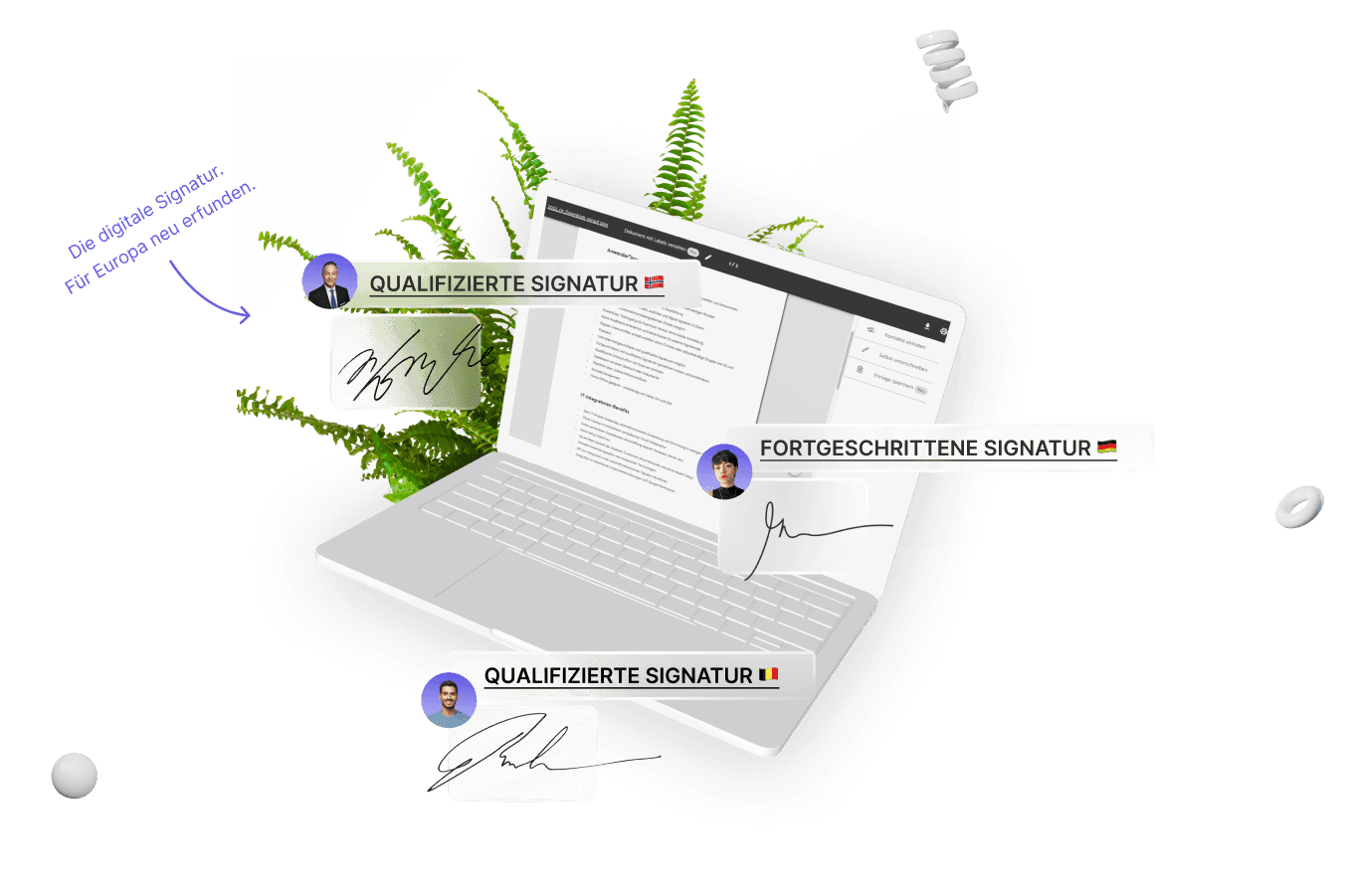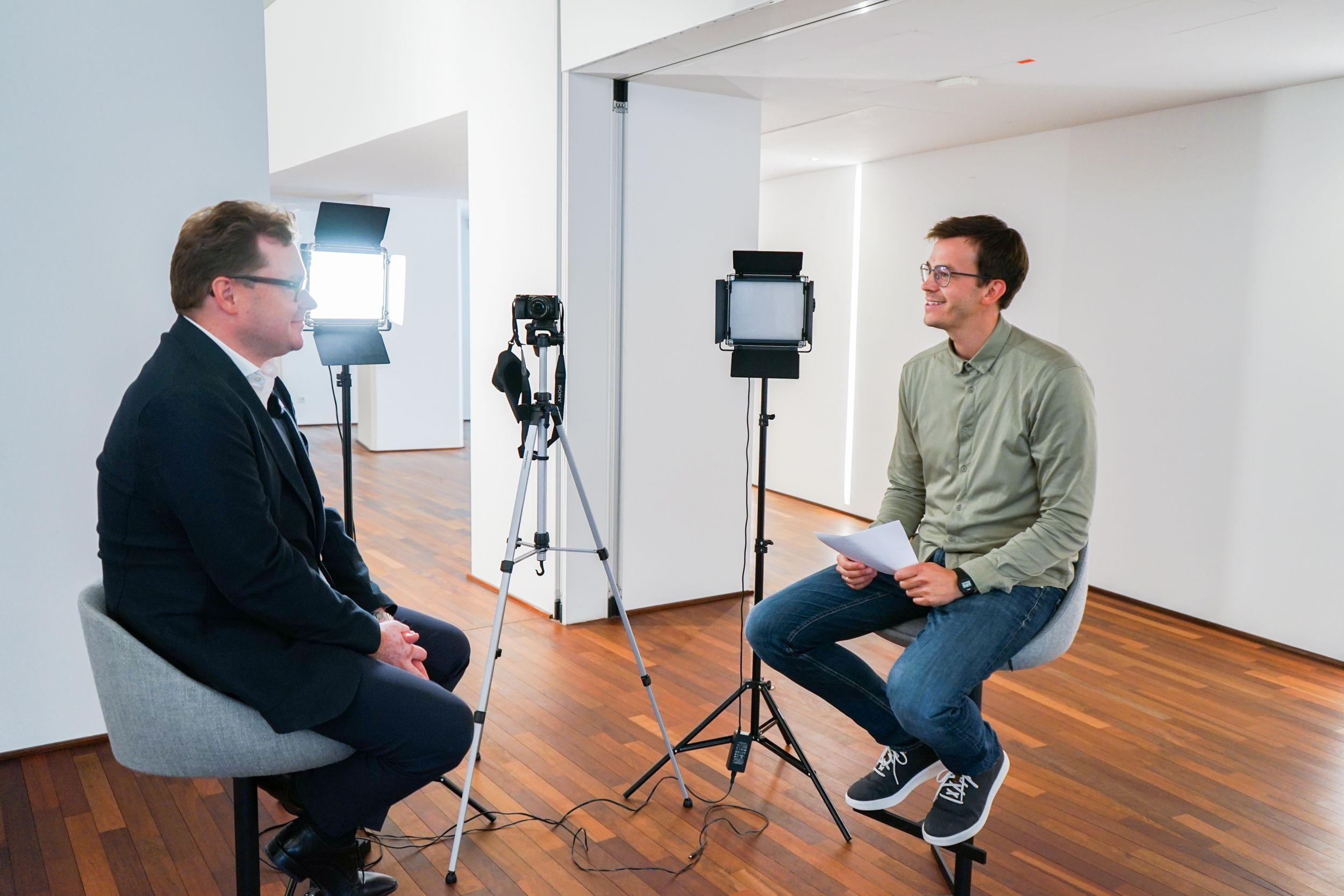Agreement
We use cookies on our website to provide you with the best possible experience. By clicking "Accept All" you agree to the use of all cookies and to our privacy policy.
The digital signature is making its way into Austria's law firms.
Updated on 20.09.2022
People trust lawyers. Lawyers trust sproof. Thanks to the integration in ADVOKAT - the leading law firm software in Austria - and the partnership with the traditional publisher Linde, more and more law firms are relying on the advantages of a digital signature platform. Most recently, Binder Grösswang, one of Austria's large law firms, has placed its trust in the young Salzburg-based company.
1 Binder Grösswang signed digital

"It's all about commitment and trust in our industry. The digital signature, in the highest quality class, has become a common form for us to make binding decisions or to obtain them digitally."
Dr. Christian Zwick | Partner
Binder Grösswang has been one of Austria's leading law firms for 60 years, with offices in Vienna and Innsbruck. More than 100 lawyers and a transaction volume of 50 billion euros speak for themselves. After the decision to integrate a digital signature platform was made, sproof emerged as the favorite after a rigorous phase of evaluation.
"It is a very special honor that we were able to convince Binder Grösswang, as an established but above all innovative law firm, of sproof and win their trust," says Dr. Fabian Knirsch, founder and CTO of the company.
Binder Grösswang - especially the team around Dr. Christian Zwick - signs digitally when it is legally possible. "In principle, we always sign when the pen is to be replaced. In Austria, that means almost all documents, since the principle of freedom of form applies under civil law," says Dr. Zwick.
Accordingly, the digital signature is used for these documents, among others:
- Powers of attorney
- Sales contracts
- Non-disclosure agreements
- Resolutions
sproof is one of the few signature platforms that allows verification of digital signatures directly in the tool.
2 convincing reasons why lawyers rely on digital signatures
The legal profession has always been an integral part of any functioning society. Trust and good communication between lawyers and clients form the foundation. It may sound a little dogmatic, but the legal industry is certainly not a pioneer in the advancement of digitalization. This is probably because traditional techniques and workflows, which have been established and proven for centuries, do not want to be replaced.
However, even the "legal industry" has now recognized the strengths of meaningful digitization for various reasons. Be it the digital file, instead of overflowing archives, or even experimenting with various digital "speech to text" applications that could relieve the secretariat in certain places or even replace it in the future, for the many paperwork.
In particular, one opportunity of digitalization, which also holds great potential for the legal industry, is on the rise: the digital signature!

Declarations, resolutions and contracts - all these are documents that have to be signed by one or more people. Even one document on which three people have to sign by analog means means a total time expenditure of around 45 minutes: This includes printing in triplicate, sending documents through the mail, or coordinating a joint appointment for signatures. This waste of resources is dispensable.
In the private sector, the digital signature has already established itself in Austria in the form of the "cell phone signature". For several years, many Austrian citizens have been using this free government service.
However, "only" the digital signature alone is usually insufficient in the business environment. There is a lack of technical possibilities, a tool or a platform that can map the use cases and "signature runs" specific to an industry or a company. An associated common "dashboard" provides a good overview of important documents. This requires a central administration of all users and a rights and role management. This also brings a lot of advantages.
In many companies, regardless of size or industry, a digital signature platform is already an integral part of many standard workflows. This legally recognized technology is already being used in the legal sector, in taxation, in the financial sector, but also by large international companies with strict IT guidelines and in the public sector.
3 Instead of ink & paper: cryptographic encryption and digital proof of identity.
The digital signature is an indispensable building block of the digital transformation. Nevertheless, many doubt whether the digital signature is legally valid and thus legally compliant. But digital signatures and their binding nature are precisely defined and regulated in the European Union. In 2006, the eIDAS Regulation (EU) 910/2014 (Electronic Identification and Authentication Services) established the regulations for Europe regarding the highest level of security and conformity of digital signatures. The regulation governs the legal recognition of electronic proof of identity and authentication services and thus considerably strengthens trust in electronic communication between companies and citizens and facilitates cross-border services and business processes of all kinds.
There are three digital signature standards which have been precisely defined in terms of legal validity in the eIDAS Regulation: simple, advanced and qualified.
The signatures look almost the same on the surface, but the status of the signature and its binding nature are very different. Only the "qualified electronic signature", also known as QES, is legally comparable to a signature (see § 4 (1) Austrian Signature and Trust Services Act.

The AES and QES enable secure digital signing.
Due to the highest compliance & security, only the qualified electronic signature comes into consideration for many law firms. A digital signature that is equivalent to the conventional signature on paper.
But how does the high level of security come about from a technical perspective? What is the high probative value of the qualified electronic signature?
4 The qualified signature: no mystery
Even though the relevant specialist media are always trying to cast the qualified electronic signature in the most complex and technical light possible, we at sproof have made it our business to reveal the supposed "mystery" - in a nutshell.
As for many other electronic legal or banking transactions, you must be able to prove your own identity with 100% certainty. This is done initially via a short (approx. 10 minute video identification procedure), in which your personal data and also biometric data are checked by a state-approved service (Trust Service Provider).
After that, you will be able to use a cell phone app to additionally verify every digital signature you make. In addition to your e-mail address, which you need anyway to sign and obtain signatures, your cell phone is thus your second security factor.
The signed documents themselves are digitally encrypted using cryptographic methods. Only the owners of a document, or those who have been invited to sign it, can edit the document or just sign it. Each document is provided with a unique cryptographic key at any time, which is impossible for any human or computer to see. The validity and evidential value of the document is also independent of the signature platform used, since the cryptographic key (or "hash value") is imprinted in the pdf. file itself. Consequently, any printing out and physical storage of the document is also pointless, since the traceability expires when the document is printed out.
In order to verify the validity of an electronic signature and conformity as described above, the signed (digital!) document can be verified using the national signature verification services, e.g. via the Communications Authority Austria:
rtr.at
Platforms such as sproof as a platform itself offers an integrated verification service.
In short: The qualified digital signature is 100% forgery-proof & legally valid. A signature made by hand is also 100% legally valid, but never 100% forgery-proof.
5 It Doesn't Take Much to Get Started with the Qualified Digital Signature
Digital signatures are technically demanding and require a special degree of responsibility from the manufacturer's point of view - after all, the signatures generated with them offer the highest degree of bindingness. However, a broad spectrum of users, from lawyers to secretaries to clients, must be able to work with them easily, quickly and intuitively.
The technical complexity is completely hidden in sproof and a simple and low-threshold access is created. Philipp Gernerth is responsible for UI and UX (User Interface and User Experience) at sproof.
"We are developing a modern, technically highly sophisticated product that offers the highest security and commitment guarantees. Nevertheless, it has to be as simple as possible and intuitive to use. Otherwise we miss the target," explains Philipp Gernerth, who is responsible for UX (user experience) and UI (usability) at sproof.

Dr. Christian Zwick (Binder Grösswang) and Philipp Gernerth (sproof) at a meeting in Vienna at the newly designed headquarters in Vienna, 1st district. The innovative law firm stands for openness towards young companies. An exchange about the use cases of digital signatures in the legal industry is profitable for both sides.
(Binder Grösswang, Vienna 2022)
From a user perspective, the qualified electronic signature thus essentially means the following:
You have a document to sign, which is available as a Word or PDF document. You load this into the signature software in order to sign it. You can find the signature software at sign.sproof.io . You can start at any time free of charge.
A qualified electronic signature requires a one-time identification. This means you have to identify yourself in a short video call ("Video-Ident-Procedure") and show your (valid) passport or ID card there. This identification is only necessary once and is then valid for five years or (if this occurs earlier) until the expiration of your identification document.
As part of the identification process, you install an app on your cell phone or alternatively -- if you cannot or do not want to install the app -- you will later receive a one-time code via SMS.
To sign a document, you select the position of your digital signature and optionally upload an image of your handwritten signature. Now you authorize the signature on the cell phone via the app or enter the one-time code received via SMS. The image of your signature has no legal relevance here, but enables a common and familiar representation of the signature. The legally binding signature is applied "invisibly" in the background in purely digital form. The document is now digitally signed in a legally valid manner. With sproof, the document is also converted into the PDF/A format commonly used and required by attorneys. You, your clients or the court can check the conformity of the document and the electronic signature at any time, e.g. at the state testing service of the RTR.
6 Sensitive data in safe hands
When using digital signature services, data protection plays a particularly important role. This is particularly important in the case of so-called "cloud software" (i.e., software that does not need to be installed but can be used directly via the web browser and the Internet). This offers the advantage of being immediately ready for use without the need for your own hardware or an IT project. Furthermore, the software can be accessed from anywhere, even mobile. The data transfer is always encrypted using the latest technology and at the highest security level.
"The cloud is up and running from day one. It's all serviced by sproof, complies with European data protection and is therefore ideal for us lawyers as well."
Dr. Christian ZwickBinder Grösswang
In terms of data protection, the legal requirements in terms of the GDPR must be met on the one hand, and on the other hand, the highest level of security must be ensured from an IT security perspective. The signature software provider sproof, guarantees both by storing and processing the data exclusively in data centers within the European Union and avoiding any US reference. A deletion concept that is an integral part of the solution and an order data processing contract based on the EU template also guarantee the highest standard of data protection from a legal perspective.
Conclusion
The advantages of the digital signature are obvious: it is fast, simple and, above all, 100% secure. More and more lawyers are recognizing this and are benefiting from the digital signature in their work. This is a clear trend that will continue in the coming years.
More blog entries
NIS-2 directive and digital signatures: a step towards greater security in the digital worldDigital Signature 2.0 - Qualified Signing without Borders throughout EuropeKyocera & sproof. A little digitization fairy tale. QES, AES, SES: Overview of all e-signature-standards Digital signing & sustainability